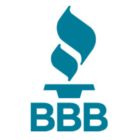Consumer and Finances
Stealing Your ID by Stealing Your Phone’s Account: How to Avoid the SIM Swap Scam
|
If your cell phone is your go-to device for checking your email, paying your bills, or posting to social media, you’re not alone. So imagine that your cell phone suddenly stops working: no data, no text messages, no phone calls. Then picture getting an unexpected notification from your cellular provider that your SIM card has been activated on a new device. What’s going on? These could be signs that a scammer has pulled a SIM card swap to hijack your cell phone number.


